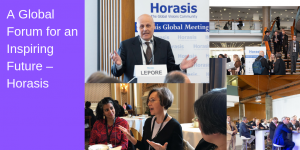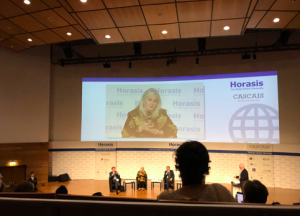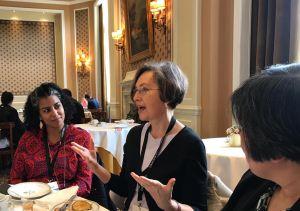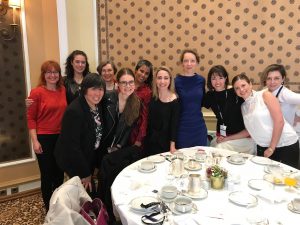
So here we are, just back from being invited to speak at the Horasis Global Forum in Cascais, Portugal. This was a unique gathering of handpicked delegates from different continents, including heads of state, senior politicians, leaders in business and finance as well as innovators in a wide range of sectors. The theme was ‘Catalyzing the Benefits of Globalization’. Why Horasis? It was created four years ago by Frank Jurgen-Richter who was part of the Davos organization and who saw the need for a different kind of global forum, one that would bring together people from different walks of life to work together on themes of global relevance.
While I was not quite sure what to expect, the four days of intense panels, plenary sessions and conversations, from breakfast to bedtime, proved to be energizing. There is something very special about an open place where people feel comfortable engaging with complete strangers united around a common theme.
Competitiveness at National Level
As Intelligent Management, we were invited on the panel about ‘Competitiveness at National Level’. This is a subject we care deeply about as we have had the privilege of working with companies in Europe and North America to improve their competitiveness. It was encouraging to hear Deborah Wince-Smith, President of the USA Competitiveness Council make the point that when it comes to competitiveness, governments are behind with regulations for today. We need to transform models and systems and focus on values and ethics. She was talking our language.

In our next post we will look more in detail at our systemic take on competitiveness. For now, I would like to offer just a couple of characteristically provocative quotes from the event from our Founder, Dr. Domenico Lepore.
“Leadership is about having a theory and anticipating what will happen and the implications and then persuading people to act accordingly to mutual benefit.”
“We have to challenge our assumptions and deal with complexity. Complexity. is a science. And we need to completely reconsider leadership and curriculum that we need for leaders today. Too many leaders stuck in Newtonian thinking.”
“How about we think about competitiveness as cooperation? And how about seeing that ministries are networks of competencies?”
When we say these things at Intelligent Management they are not just opinions or ideas. They are statements based on two decades of a relentless feedback cycle of solid theoretical development tested through on-the-field implementations in organizations. This is what all our books and publications are based on.
Women at Horasis
An unexpected pleasure for me during the event was taking part in an impromptu breakfast meeting with other women at Horasis organized by Nora Stolz, Founder of Women Breakfast Club. We each presented ourselves and our work and the range of meaningful and innovative projects just at that breakfast table was inspiring, from increasing connectivity in Kenya to funding computing for cancer research in Canada, and those were just the people sitting next to me! I had the opportunity to describe the work we’ve been doing at Intelligent Management for 20 years to transform organizations from traditional hierarchies and silos towards flatter, fairer and faster networks of projects.

On the last day of the forum I got up early to go to a breakfast panel about the #MeToo movement. Given the subject matter, it was one of the most thought-provoking and raw discussions. The subject was too broad for one discussion, from victims of rape through to mentoring women colleagues. It does come down to a power issue in the end and healing needs to happen. From an organizational standpoint which is our main concern at Intelligent Management, unless we systemically address the matter of how organizations are structured and how interdependencies are designed based on competencies, we cannot solve abuses of power and bias.
I am already missing the company of so many bright souls and the warmth of the Portuguese welcome, but now the conversations have been had, it’s time to move on to positive, coordinated action for systemic change. That’s been our job for two decades and we always look forward to helping more organizations take up that challenge.

Since 1999, we have been presenting a new model for a systemic organization in detail, both in terms of the thinking behind it and how to conduct operations. We work alongside CEOs and Executive Teams to support the shift towards more effective, systemic strategy and operations. Our books include ‘Deming and Goldratt: The Decalogue‘, ‘Sechel: Logic, Language and Tools to Manage Any Organization’, ‘The Human Constraint‘ and most recently, ‘Quality, Involvement and Flow: The Systemic Organization’ . We support our international clients through education, training and the Ess3ntial multi-project software using Critical Chain to schedule competencies and unlock the potential of human resources. Based on our proprietary Decalogue methodology.





Leave a Reply